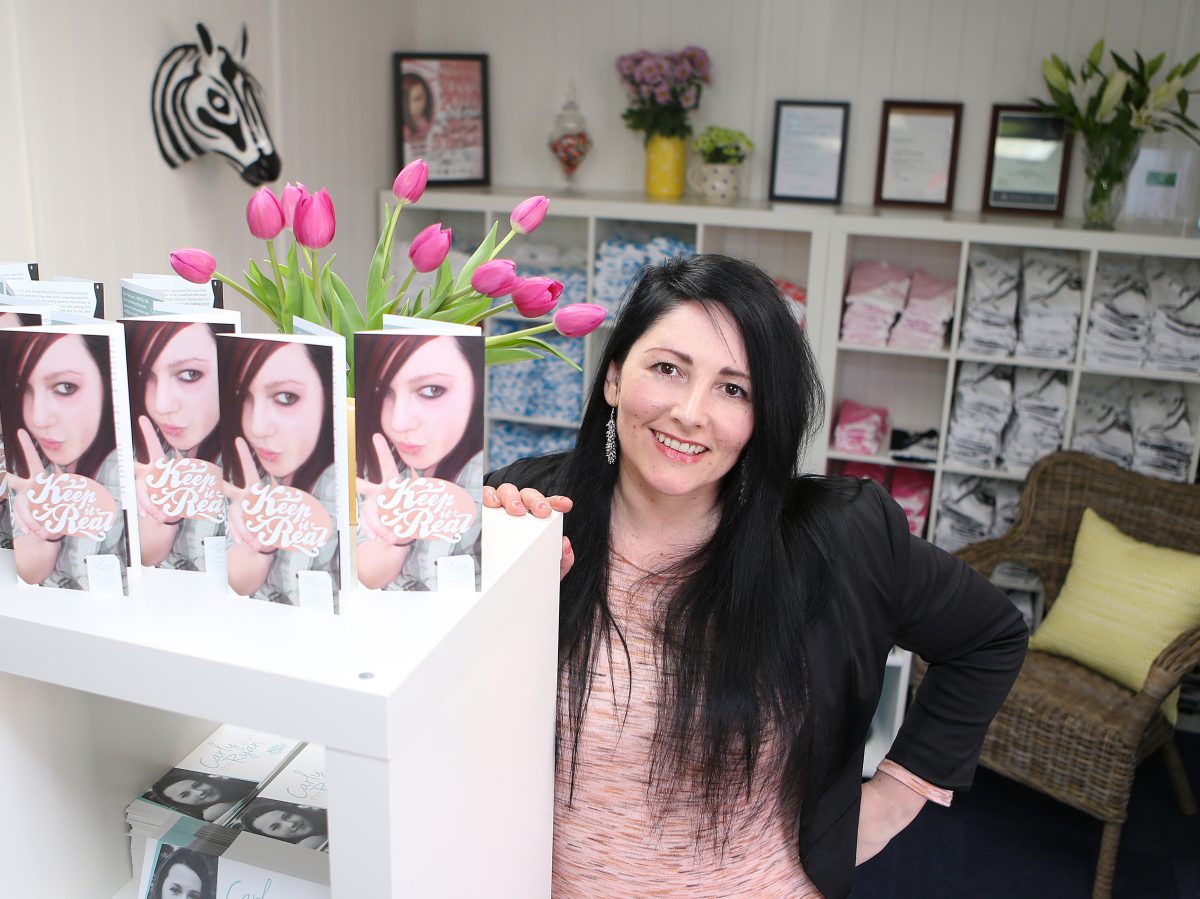
After her daughter was murdered by an online predator, Sonya Ryan began a mission to protect other children, writes Shane Green.
In early March, Sonya Ryan travelled to Canberra to meet Prime Minister Malcolm Turnbull. Over a cup of tea at Parliament House, the discussion was about a new law his government was about to announce to protect young people from online predators.
For Ms Ryan, it was an intense, emotional moment. She had campaigned for a decade for the law, known as Carly’s Law, named in honour of her daughter who at 15, was murdered by an online predator.
‘Oh, the feelings were just overwhelming,’ Ms Ryan says of that day in Canberra. ‘You think to yourself, the difference that this will make to others’
Carly’s Law gives police the power to act before a child is harmed. ‘And that’s really quite an overwhelming, incredible feeling – to know that this legislation is going to prevent children from harm. How do you find the words to describe how that feels?’
All she could think about, she recalls, was what Carly would say. She knows that her loving, compassionate daughter would want the positive change that’s been achieved.
The awful tragedy that began this journey occurred in February 2007. Carly was lured to a beach and murdered by middle-aged paedophile Garry Newman who had groomed her online, posing as an 18-year-old musician from Texas. He is now serving a life sentence, with a 29-year non-parole period.
Somehow, out of her grief and pain of the trauma, Ms Ryan was able gather her strength, determined to honour her daughter’s legacy and protect other young people. She knew that while the online world was in its infancy, criminals were migrating there and vulnerable young people were at risk.

She created the Carly Ryan Foundation, and began spreading the message to young people. She recalls her crippling nerves before her first school address to a gymnasium packed with 900 students.
She pushed on, and the impact was profound. ‘I remember looking across at the Principal and he was in tears because he came to me afterwards and said, “I have never seen all of my students so quiet. You could just hear a pin drop. They were really listening, you know.”’
Countless presentations to young people followed. ‘Carly, her experience, what happened, creates that connection,’ says Ms Ryan. ‘The kids understand, I think, that I’m there for their benefit and I’m there to talk to them about their choices and how their choices affect their own happiness. So I speak to them in a real way.’
New Laws to Act Against Predators
Beyond telling Carly’s story, there was also the failings in the laws that allowed predators to groom children online. Police needed new powers to intervene sooner, get DNA and seize technology.
She found a champion in South Australian Senator, Nick Xenophon.
He introduced legislation in 2013, and four years later, with the Australian Government and the Opposition supporting the changes, Carly’s Law was passed. A visual reminder is a patchwork quilt that hangs on a wall at Parliament House, made of material from Carly’s favourite clothes.

Prime Minister Turnbull said at the time that Ms Ryan had worked tirelessly to protect young Australians. ‘With Sonya’s help and in Carly’s name we have taken action to provide greater protection for young people online,’ he said. ‘Carly’s Law will enable law enforcement agencies to take action sooner and with greater consequence.
‘Sonya, we thank you and we stand with you.’
The enacting of the law that carries her daughter’s name is far from the end of Ms Ryan’s work. She is booked by schools for the rest of the year, supported by Katie Went, one of Carly’s friends who works at the foundation.
Ms Ryan, who was named South Australian of the Year in 2013, is also campaigning for tougher penalties for child sex offenders.
She says under current federal laws, the maximum penalty for serious sex offences against a minor is 25 years, and the penalties are not being enforced. ‘It’s absolutely appalling,’ says Ms Ryan.
Parents Need to Have Difficult Conversations
The online world occupied by young people can be a foreign place for parents.
Ms Ryan urges parents to learn to have conversations with their children about issues such as sexuality and pornography. The car is often an ideal safe space, she suggests. Looking out the window, there’s no need to eye contact.
Among the many resources on the foundation’s website is the Family Online Contract, which sets out some basic online rules for children. It begins with: ‘Tell my parents or carer if I see something that makes me feel upset, uncomfortable or scares me.’
The focus is on practical information – a support for those all-important ‘How’s everything going?’ conversations between parent and child.
Ms Ryan says she feels grateful she has been able to step outside ‘that incredible darkness into a place and light and positivity for others.
‘I have so much gratitude for the fact that I’m alive, let alone being able to do what we’re doing now – to give a voice to children who don’t generally get an opportunity to speak up for themselves,’ she says.
‘And to be able to be that voice and to be able to protect innocence and youth is a real honour.’
You can find out more about the Carly Ryan Foundation and download the Family Online Contract on the foundation’s website. The foundation recently received funding to present to schools across Australia.
Like this post? Please share using the buttons on this page.


